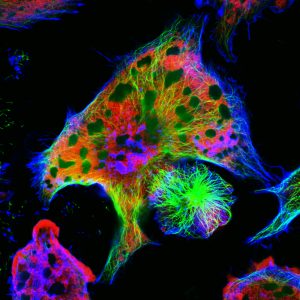The United Nations (UN) stated that it is possible to put a stop to AIDS as a threat to public health by 2030 with proper funding. They have set a target to achieve this.
The UNAIDS agency sent out a message of active hope in its annual World AIDS Day Report. The UN began with this initiative in 2015, hoping to achieve significant results by 2030. Approximately 85.6 million people have been infected by HIV with an estimated 40.4 million fatalities.
Understanding HIV/AIDS
The Malaysian AIDS Foundation’s 2022 annual report shows a total of 128,638 reported cases of HIV from 1986 to 2021 with a total of 45,969 fatalities. 2,760 new cases were diagnosed in 2021 with 519 deaths. 68,956 cases were intravenous drug users (IVDUs) while another 48,288 patients got HIV via sexual contact.
HIV refers to a virus that attacks the host body’s immune system, specifically white blood cells called CD4 cells. The weakening of the immune system that results from this leaves the affected individual vulnerable to simple infections that could end up being fatal. The virus can be present in the body in two different states;
- Inactive (latent) : The virus is present but does no harm
- The virus takes over the functions of the infected cell, causing it to produce and release many new copies of HIV, which then invade other cells.
AIDS refers to the most severe form of HIV infections. HIV patients are considered to have AIDS when at least one AIDS-defining illness develops or the number of CD4 cells (CD4 count) falls significantly. AIDS-defining illness include:
- Opportunistic infections (serious infections in people with a weakened immune system) including fungal infections, bacterial infections and viral infections.
- Certain cancers such as invasive cervical cancer, Kaposi sarcoma and certain lymphomas.
- Nervous system dysfunction.
- Significant weight loss (AIDS wasting).
How Is HIV Transmitted?
HIV is usually transmitted in the following ways :
- Sexual contact with an infected person, especially during unprotected sex.
- Injection of contaminated blood which could occur in sharing of needles among IVDUs or a healthcare worker getting accidentally pricked with a HIV-contaminated needle.
- Virus transfer from an infected mother to her child during pregnancy, during birth or after delivery via breast milk.
- Medical procedures such as blood transfusions, procedures done with instruments that are not properly sterilised or transplantation of an infected organ/tissue.
Symptoms Of HIV Infection
Some people are infected with HIV years before they develop symptoms. Most people do not have noticeable symptoms during initial stages of infection. Some may experience fever, rashes, sore throat, swollen lymph nodes among other non-specific symptoms. A period of 2 to 12 years could elapse before patients start experiencing:
- Swollen lymph nodes (small, painless lump in the neck, under the arms, or in the groin.
- White patches in the mouth (oral thrush) due to a yeast infection (candidiasis).
- Shingles
- Diarrhoea
- Fever, with occasional sweating
- Progressive weight loss
- Anaemia
More severe symptoms can arise depending on the organ affected, including the lungs, brain, digestive tract, kidneys, heart and reproductive organs. For some patients, these are their first symptoms of AIDS.
Screening, Diagnosis and Treatment
The current screening methods (blood tests) for HIV are relatively quicker, painless and accurate. The tests are confidential and patients do not need to fear getting tested. People with low risk and a negative test result do not need to repeat their screening test unless their risk status changes. People with high risk and negative test results should have repeat tests done every 6 to 12 months.
AIDS is diagnosed when the patient’s CD4 count drops below 200 cells per microliter of blood or when severe wasting/serious opportunistic infections/cancers develop. Early diagnosis of HIV infection is vital. Early treatment enables infected people to live longer, be healthier, and be less likely to transmit HIV to other people.
Treatment for HIV is usually anti-retroviral therapy (ART) with occasional medications to prevent opportunistic infections/relieve symptoms. While the treatment may not eliminate the virus from the body, HIV levels are often reduced to levels that are not detectable in the blood/bodily fluids. The treatment is lifelong and patients are advised to take them as directed without skipping doses to prevent drug resistance.
Doctor’s Insight
Professor Dr Adeeba Kamarulzaman, the immediate past president of the International AIDS Society, has been outspoken regarding curbing the AIDS pandemic. In her recent endeavour, Dr. Adeeba stated that ending AIDS by 2023 would be unlikely without engaging with IVDUs. As a member of the Global Commission on Drug Policy (GCDP), Dr. Adeeba said, “ Ending AIDS by 2023 will remain a pipe dream if we do not double down on our efforts to effectively reach and engage with the community of people who inject drugs as they are at extremely high risk of acquiring HIV.”
She also mentioned that many countries would be required to change their policies on drug use to treat IVDU’s as part of the public health system. This is preferred rather than punishing and incarcerating them. She also gave examples of countries such Portugal, Spain, New Zealand and Germany that treat drug use as a public health threat instead of a criminal one.
Dr Adeeba’s views were in line with the UNAIDS regarding harmful laws and policies towards people at risk of HIV and how these laws obstruct frontline communities from providing HIV treatment and services.
Call for Action
While there are no vaccines/cure for HIV/AIDS as of now, it is still fully preventable. Improved awareness and education can prevent HIV transmission. Follow proper protocols when handling bodily fluids, particularly in healthcare. Regular screening is essential, especially for high-risk individuals. Avoid sharing needles/syringes and practice safe sex. Most importantly, seek help from a healthcare provider early if you suspect HIV exposure.














